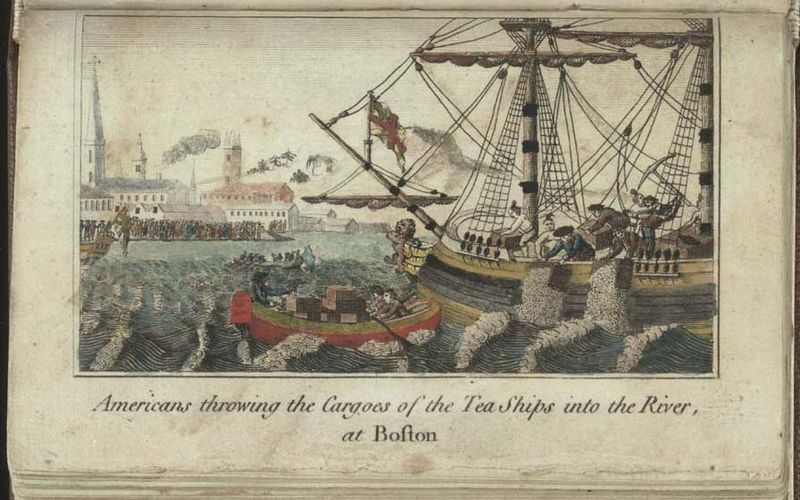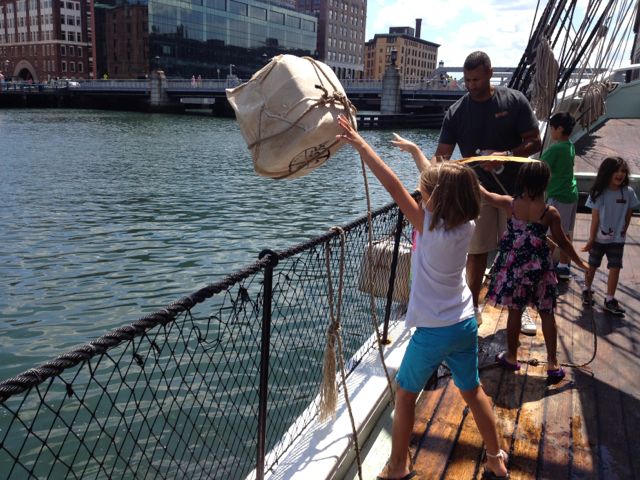
Today, when anyone mentions the Tea Party, most people think of a radical right wing sect of the Republican Party. Unless you happen to think along the lines these people advocate, you probably dismiss them as too radical to be taken seriously in our two-party hegemony. But think back to your school days’ history lessons. Do you remember the name Sam Adams?
Samuel Adams was from a politically active family. He graduated from Harvard, but was mostly unsuccessful at all his endeavors before becoming involved in politics himself. But he wasn’t your average politician. He was a rabble-rouser. He was a master of propaganda and made fiery, provocative speeches to stir up mob violence to achieve the goals he felt important. I wonder if the British Parliament or the King of England took him seriously – at first. Later, of course, they made a serious effort to capture him to silence the patriotic fervor he whipped the colonies into. And that ended up provoking war with the “shot heard round the world.”

But there are other similarities between that day and this. The tax on tea was not the first tax levied on the colonies. To pay for the French and Indian War, the debt-ridden British government started with the Stamp Act: a tax on paper, documents, licenses, playing cards, newspapers and diplomas and more. The protest was so heated it was quickly repealed and Britain tried again with the Townshend Acts that taxed imports. But the colonists just boycotted the products. All this protest and boycotting turned out so ruinous to the British East India Company that it was nearly bankrupt. And here’s where things get eerily familiar - - - Parliament passed the Tea Act in 1773 in an effort to keep the East India Company from failing. Sound like all those banks and enterprises considered “too big to fail?” The ones we pumped billions of $$$ into over the past six years?
The Tea Act gave the British East India Company a monopoly in the colonies and spawned opportunities for graft and favoritism. In September of that year the company shipped over 600,000 pounds of tea to the colonies. The colonists again resisted and most of the ships were sent back with their cargoes still aboard. But in Boston, Governor Hutchinson ordered British war ships then in Boston to blockade the harbor so the ships carrying tea could not leave and he thought that would put a stop to the protest. Until Sam Adams and other like-minded patriots roused the Boston populace to board the ships on the night of December 16th, 1773, dressed as Native Americans and toss 342 chests of tea into Boston Harbor.
I often wonder how far our current government will push the American people today with new and more punitive taxes before a modern day Sam Adams comes along and rouses our justified wrath. Early in the last century there were no federal taxes on the our citizens and our country had no debt. Since then it has been one new tax after another and an ever-mounting debt. Maybe it’s time for another tea party?